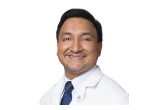Dr. Inderpal Randhawa Has Been Recognized Among the Top in His Industry by the Expert Network©

Orange County, CA, March 7, 2017 (Newswire.com) - Dr. Inderpal Randhawa, President & Chief Medical Officer, Translational Pulmonary & Immunology Research Center, has joined The Expert Network©, an invitation-only service for distinguished professionals. Dr. Randhawa has been chosen as a Distinguished Doctor™ based on peer reviews and ratings, numerous recognitions, and accomplishments achieved throughout his career.
Dr. Randhawa outshines others in his field due to his extensive educational background, numerous awards and recognitions, and career longevity. After receiving his M.D. in 2001 from Northwestern University’s Feinberg School of Medicine, Dr. Randhawa returned to his family's home and completed a combined residency in internal medicine and pediatrics. He then did a two-year fellowship in clinical immunology, allergy, and transplant at UCLA, followed by another two-year fellowship at UC Irvine in pediatric and adult pulmonology. Today he is board certified in both adult medicine and pediatrics.
"The FDA and the NIH have entire branches dedicated to precision medicine, but what it means functionally is that we need to treat patients on an individual basis. We need to design and create the appropriate biomarkers for different conditions. When we take these biomarkers into consideration, the response to therapy can be much more focused and accurate, and you won't end up having incredibly high fail rates for the drugs that make it to the market."
Dr. Inderpal Randhawa, President & Chief Medical Officer, Translational Pulmonary & Immunology Research Center
With 14 years dedicated to medicine, Dr. Randhawa is one of Orange County's leading experts in the field of immunology, allergy medicine, and pulmonology. When asked why he decided to pursue a career in medicine, Dr. Randhawa said:
"My father's untimely death from a heart attack forced me to analyze my place and the impact I could make on modern medicine. His veterinary office is where I saw the clinical practice of medicine and what good medicine could look like. I was influenced by my father, insofar as I believe in trying to make a difference, and trying to ask hard questions. I've always had a sense of curiosity, and it’s all stemmed from there. It was all about mindset."
Motivated by his time spent in the intensive care unit dealing with various pulmonary disease patients, Dr. Randhawa founded TPIRC. He had seen the need for an organization that focused its efforts on orphan conditions—specifically, diseases that haven’t had any signicant development in therapy or treatment options in over a decade. His work at TPIRC allows Dr. Randhawa to target rare conditions that have been falling through the cracks of the healthcare industry and need special attention. Today, his institute has pioneered significant progress in bronchiectasis research as well as the use of oral immunotherapy, and continues to make advances in treatment and research for these rare diseases.
Recognizing the growing incidence of food allergies in children, Dr. Randhawa also founded the Southern California Food Allergy Institute, TPIRC's food allergy branch. Affiliated with Miller Children’s Hospital, the nation’s sixth largest children’s hospital, SoCal Food Allergy has revolutionized food allergy treatment for children of all ages. It is the only hospital-based food immunotherapy institute focused on precision medicine, an approach that involves an assessment of each patient’s immune system to predict how that patient will respond to specific food proteins, resulting in unmatched predictability, safety, and long-term success.
As a thought-leader in his specialty, Dr. Randhawa pays careful attention to prevailing trends in his industry. And as medicine continues to evolve, Dr. Randhawa feels even more firm in his belief that personalized medical plans for each patient will result in higher success rates and fewer side effects. He noted:
"The FDA and the NIH have entire branches dedicated to precision medicine, but what it means functionally is that we need to treat patients on an individual basis. We need to design and create the appropriate biomarkers for different conditions. When we take these biomarkers into consideration, the response to therapy can be much more focused and accurate, and you won't end up having incredibly high fail rates for the drugs that make it to the market."
For more information, visit Dr. Randhawa's profile on the Expert Network here: http://expertnetwork.co/members/inderpal-randhawa,-md/07749f27326b76a4
The Expert Network© has written this news release with approval and/or contributions from Dr. Inderpal Randhawa. The Expert Network© is an invitation-only reputation management service that is dedicated to helping professionals stand out, network, and gain a competitive edge. The Expert Network selects a limited number of professionals based on their individual recognitions and history of personal excellence.
Source: The Expert Network©


